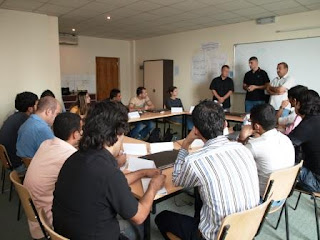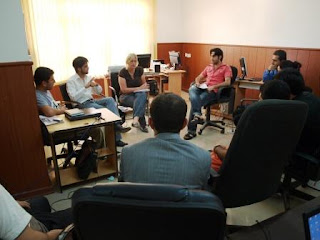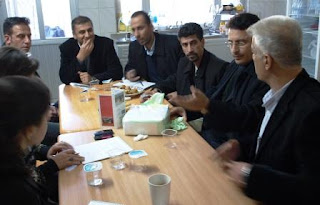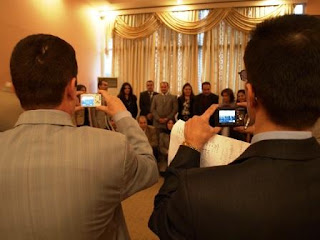Radio for Media bo Khalq

Radiomaker Joris van de Kerkhof arrived in Iraqi Kurdistan for the third time to conduct a workshop for IMCK in making radio. This time the participants of Media bo Khalq, the post graduate training of IMCK in Irbil, are his students. Van de Kerkhof will train them on the basics of radio making, to give them a better choice of what they like in journalism. Another reason for the training, which brings both the print and TV group of the course together, is that journalists more and more have to be multi medial. The training started on October 11 and will end on October 14, and takes place in the training rooms of Media bo Khalq in the Hotel Safeer in Irbil.












